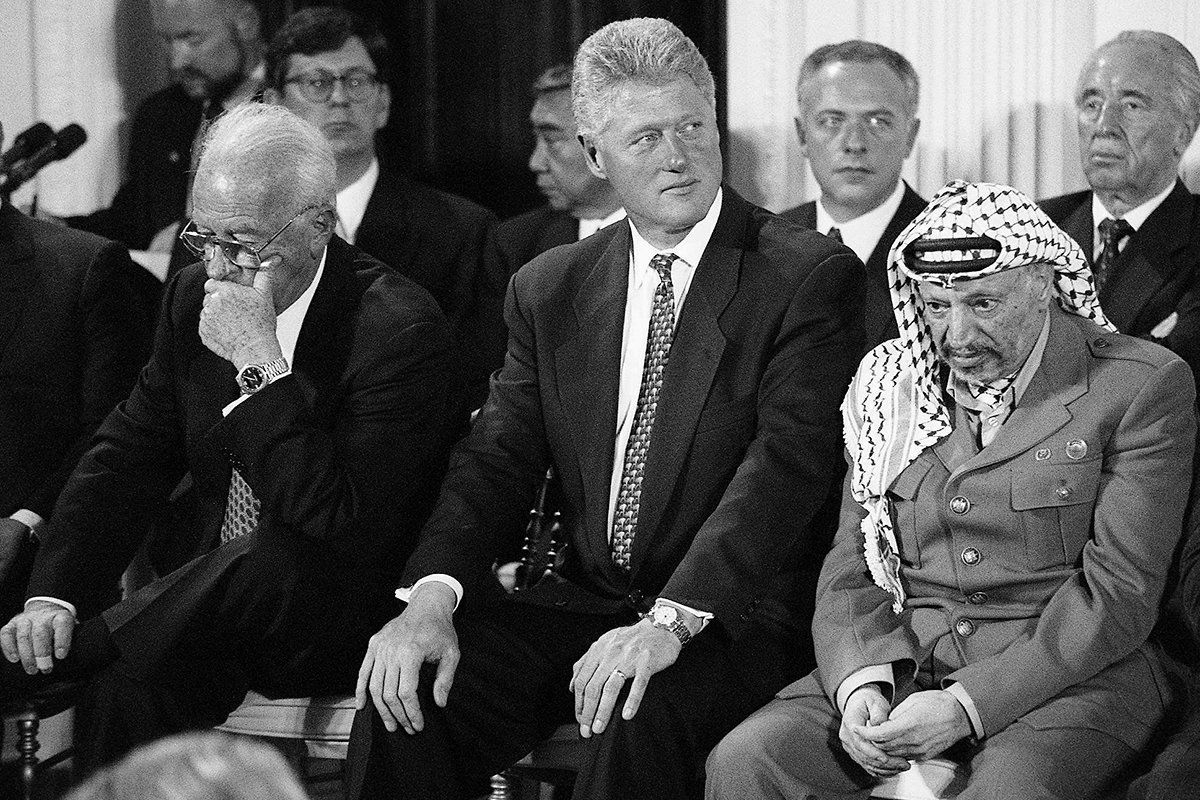
When President Obama hosts the Israeli and Palestinian leaders in Washington this week for the start of direct talks, he should remember above all that the two sides have been at this for a very long time. Their peace process began when Obama was still in law school. At least a dozen summits have preceded this one with little or no tangible results. As such, Israelis and Palestinians are deeply skeptical about the prospects for an agreement—and worried that another failure will trigger fresh waves of violence. To acknowledge the long odds and to avoid sounding out of step, here are four lofty phrases uttered throughout the era of peacemaking that all sides should do their best to avoid.
Swords Into Plowshares: Both Israeli and Palestinian leaders have invoked this biblical prophecy from the Book of Isaiah to describe the grandiosity for the mission: not just ending their war but forging a new Middle East. Nice words, but the process has long ceased being about all that; now it's about refugees, borders, settlements, and sovereignty. After untold rounds of failed talks, the sides should focus on the nitty-gritty.
Peace of the Brave: Coined by the late Yitzhak Rabin and Yasir Arafat, the phrase was meant as a reminder that leaders must sometimes make unpopular decisions at great personal risk for the long-term benefit of their people. After Rabin's assassination, it became an empty slogan. On the Palestinian side, Arafat simply offered his people what they wanted to hear (including the unlikely idea that refugees would one day return to their old homes in Israel). On the Israeli side, leaders countenanced ongoing settlement expansion, though it was clearly incompatible with peacemaking. Until leaders on both sides show more courage, "peace of the brave" should be purged from the lexicon.
Confidence-Building Measures: When Israel and the PLO recognized each other for the first time in 1993, the about-face was so dramatic that both sides agreed to spend up to five years building confidence and trust instead of leaping right into a all-encompassing final accord. But settlement-building on the Israeli side and terrorist attacks by Palestinians had the opposite effect: the longer the interim period lasted, the less trust and confidence the two sides felt. In 2010 there's no longer time for confidence-building. If agreements are made quickly and implemented honestly, trust will follow.
Peace Dividends: For Israelis especially, peacemaking in the 1990s held out the prospect of smaller defense budgets and new business ties in the Arab world. Palestinians talked about turning Gaza into the Singapore of the Middle East. Today the sober reality is that Israeli defense spending, now at 7 percent of GDP, will remain high long after an agreement is signed. And Gazans, ruled by Hamas, aren't even involved in the negotiations. A real dividend is not in the cards.
Uncommon Knowledge
Newsweek is committed to challenging conventional wisdom and finding connections in the search for common ground.
Newsweek is committed to challenging conventional wisdom and finding connections in the search for common ground.





